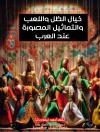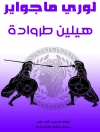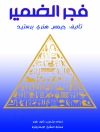This edited volume mainly focuses on the practice of taking and displaying various body parts as trophies in both North and South America. The editors and contributors (which include Native Peoples from both continents) examine the evidence and causes of Amerindian trophy taking. Additionally, they present objectively and discuss dispassionately the topic of human proclivity toward ritual violence. This book fills the gap in literature on this subject.
Spis treści
North America.- to Human Trophy Taking.- Heads, Women, and the Baubles of Prestige.- Human Trophy Taking on the Northwest Coast.- Ethnographic and Linguistic Evidence for the Origins of Human Trophy Taking in California.- Head Trophies and Scalping.- Human Finger and Hand Bone Necklaces from the Plains and Great Basin.- Predatory War and Hopewell Trophies.- “Otinontsiskiaj ondaon” (“The House of Cut-Off Heads”).- Human Trophy Taking in Eastern North America During the Archaic Period.- Severed Heads and Sacred Scalplocks.- Disabling the Dead.- Trophy Taking in the Central and Lower Mississippi Valley.- Latin America.- Captive Sacrifice and Trophy Taking Among the Ancient Maya.- The Divine Gourd Tree.- Sorcery and the Taking of Trophy Heads in Ancient Costa Rica.- From Corporeality to Sanctity.- Human Trophies in the Late Pre-Hispanic Andes.- Seeking the Headhunter’s Power.- “Handsome Death”.- Human Trophy Taking in the South American Gran Chaco.- Ethics and Ethnocentricity in Interpretation and Critique.- Supplemental Data on Amerindian Trophy Taking.- Conclusions.
O autorze
Richard John Chacon is an Assistant Professor of Anthropology at Winthrop University. He has conducted ethnographic fieldwork in Amazonia among the Yanomamo of Venezuela, the Yora of Peru and the Achuar (Shiwiar) of Ecuador and he has also worked in the Andes with the Otavalo and Cotacachi Indians of Highland Ecuador. His research interests include optimal foraging theory, indigenous subsistence strategies, warfare, belief systems, the evolution of complex societies, ethnohistory and the effects of globalization on indigenous peoples. David H. Dye is an Associate Professor of Earth Sciences at the University of Memphis. He has conduced archaeological research throughout the Southeastern. His research interests include the archaeology and ethnohistory of the Midsouth. He has had a long-term interest in late prehistoric warfare, ritual, and iconography in the Eastern Woodlands.












